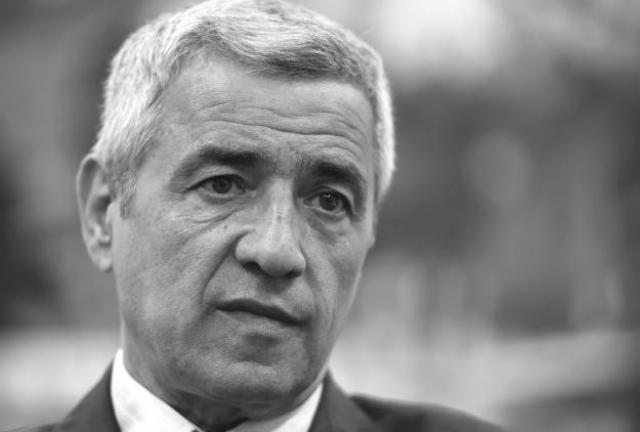WHO DID (NOT) KILL KOSOVO SERB LEADER OLIVER IVANOVIC?
On Tuesday, January 16, Oliver Ivanovic was shot dead in Mitrovica, in the Northern part of Kosovo. It was the climax of a series of attacks directed against him and his family. His car was set on fire twice, in 2005 and then in July 2017. Serbian media also reported that in September 2013, ahead of the local elections, an unknown man entered Ivanovic’s apartment and attacked his wife. The same year, someone started a fire in his party headquarters.
Ivanovic’s moderate
political posture, advocating for dialogue between Serbia and Kosovo, encountered
the opposition of the nationalist factions of the two countries. He was the
head of a civil initiative called Freedom, Democracy, Justice, and acted as an
opponent to the main Serb party in Kosovo, Srpska Lista, which is now part of
the Kosovo government. Ivanovic was also on probation for his
supposed complicity in war crimes, committed in 1999 against ethnic Albanians. Indeed, he had a lot of enemies.
Following his
assassination, the Serb government withdrew from the talks with Kosovo.
However, this move goes against the interests of the Serb head of state Aleksandar
Vucic, who is trying to ferry Serbia into the European Union. The normalization
of the Kosovo issue is fundamental for Serbia’s EU accession. Already in 2013
Vucic, then Minister of Defense, tried to convince the 40,000 Serbs living in
Northern Kosovo to accept the EU-brokered agreement with Pristina. Recently, he
asked Serbs not to waste “time waiting to take back something they have lostlong time ago.” Although in the past Vucic’s government had
been critical towards Ivanovic’s party, the two political forces agreed on the
necessity of a dialogue between Serbia and Kosovo. Now that Ivanovic is no
more on the political scene, Vucic will have a harder time in fostering bilateraldialogue.
Strong signals of
opposition against bilateral dialogue came recently from the ultra-conservative
factions of the Serb Orthodox Church, supported by a part of the public opinion.
A document signed by more than 200 Serb public personalities and important
representatives of the Serb Orthodox Church asked to stop the process of Kosovo’s
secession and advocated for a “frozen conflict as the only reasonable solution.” However, Ivanovic’s political position was against
Kosovo’s independence, simply favoring pragmatic solutions to allow the
peaceful co-existence of the two ethnic groups.
Then, who could
benefit from assassinating a moderate politician advocating for dialogue and more poised relations with Kosovo? On the one hand, Kosovo Serbs.
In case of a complete normalization of the Kosovo-Serbia bilateral relations, they would find themselves as a Serb minority in an overwhelmingly Albanian
society, without the direct backing of the Serb government. On the other hand,
Kosovo’s Haradinaj government. The homicide and the consequent tensions might
be leveraged to tighten the screws on Northern Kosovo, where the majority of
the population is Serb, to acquire even more control of the region. The last
possibility would be that Ivanovic’s political activity threatened the
interests of criminal networks, which as a result of the Bosnian and Kosovo
civil wars, are intertwined with the political nationalist elites.
Future developments will shade light on who is responsible for Ivanovic’s assassination. The hope is that ethnic tensions will be kept under control.
Future developments will shade light on who is responsible for Ivanovic’s assassination. The hope is that ethnic tensions will be kept under control.



Dialog is not conducted between Albania and Serbia, but between Serbain and Kosovar Governments...
ReplyDeleteYou're right Milos sorry for the lapse, I fixed it
ReplyDelete